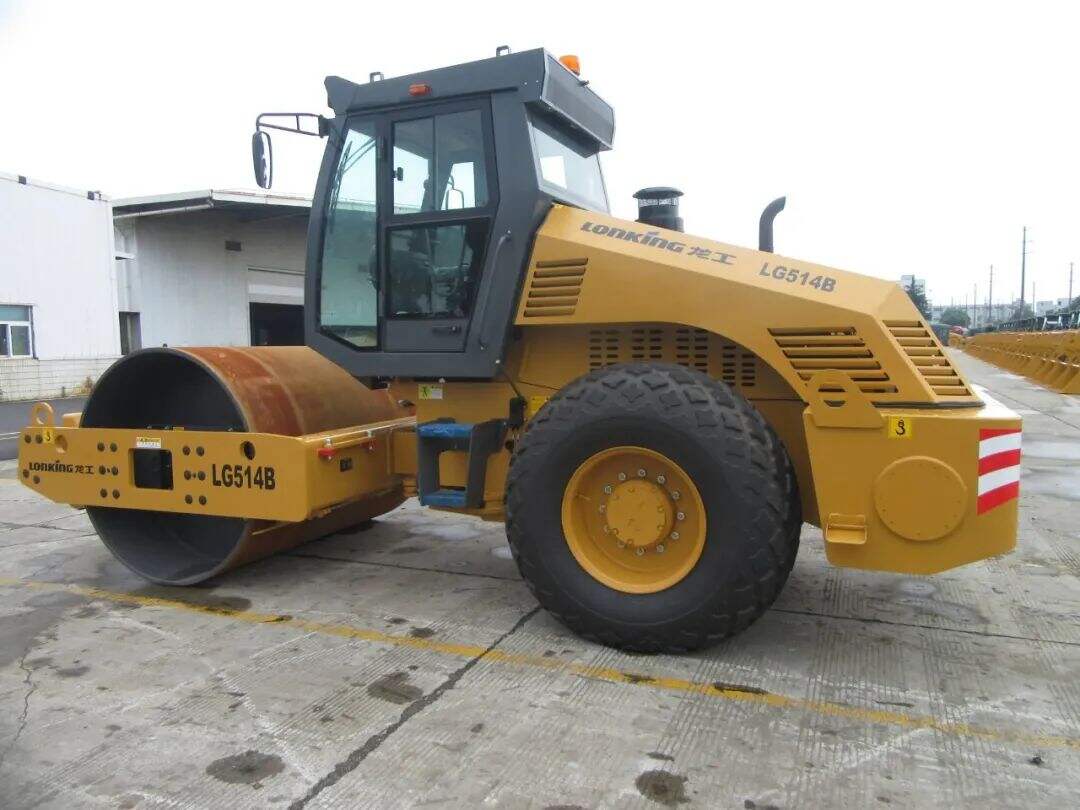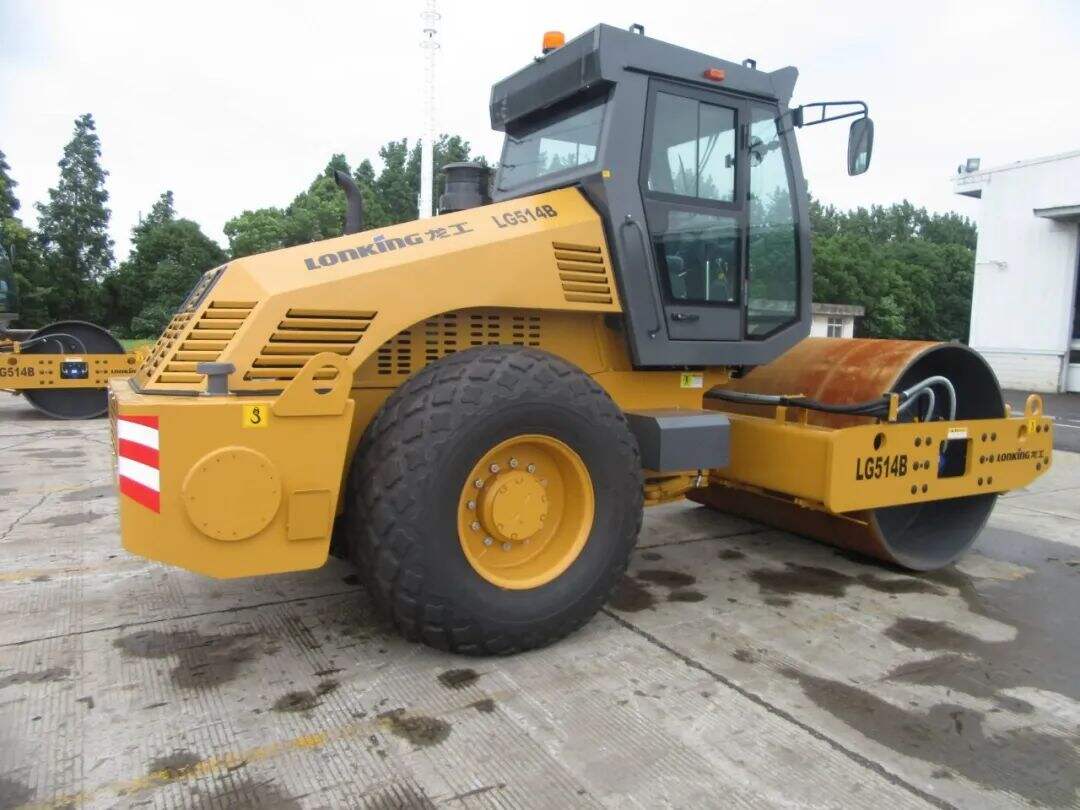Revolutionizing Construction with Eco-Friendly Compaction Solutions
The construction industry is witnessing a remarkable transformation as fuel-efficient road rollers take center stage in modern infrastructure development. These innovative machines are reshaping how we approach road construction while addressing critical environmental concerns. The latest advancements in fuel-efficient road rollers represent a perfect blend of superior performance and environmental responsibility, marking a significant milestone in construction technology evolution.
Today's construction companies face mounting pressure to reduce their carbon footprint while maintaining high productivity levels. Fuel-efficient road rollers have emerged as a crucial solution, offering substantial cost savings and environmental benefits without compromising on compaction quality. These advanced machines incorporate cutting-edge technologies that optimize fuel consumption while delivering exceptional results on various construction projects.
Core Technologies Driving Fuel Efficiency
Intelligent Power Management Systems
Modern fuel-efficient road rollers feature sophisticated power management systems that automatically adjust engine output based on operational demands. These smart systems monitor real-time performance parameters and optimize power distribution, ensuring the machine uses only the necessary energy for each specific task. The result is significantly reduced fuel consumption without sacrificing compaction effectiveness.
Advanced sensors continuously analyze ground conditions, machine speed, and compaction requirements, allowing the system to make instantaneous adjustments to power output. This intelligent approach ensures optimal fuel utilization while maintaining consistent compaction quality across various surface types and conditions.
Hybrid Power Solutions
The integration of hybrid technology in road rollers represents a major breakthrough in fuel efficiency. These systems combine traditional diesel engines with electric power components, creating a more sustainable and efficient operation. During less demanding tasks, the electric system takes over, significantly reducing fuel consumption and emissions.
Hybrid fuel-efficient road rollers can recover and store energy during braking and deceleration, which is then reused during operation. This regenerative system substantially improves overall fuel efficiency while providing the power needed for effective compaction.
Advanced Control Systems and Automation
Precision Compaction Technology
State-of-the-art fuel-efficient road rollers incorporate precision compaction technology that optimizes the compaction process. These systems use advanced sensors and GPS technology to track compaction progress in real-time, ensuring uniform coverage while minimizing unnecessary passes. The result is reduced fuel consumption and increased productivity.
The intelligent compaction systems provide operators with detailed feedback about material density and stiffness, allowing them to achieve optimal results with fewer passes. This efficiency not only saves fuel but also reduces wear and tear on the equipment.
Automated Operation Modes
Modern road rollers feature multiple automated operation modes designed to maximize fuel efficiency. These preset modes optimize machine parameters based on specific application requirements, whether working on asphalt, soil, or other materials. Operators can select the most appropriate mode for their current task, ensuring optimal fuel consumption while maintaining high-quality results.
The automated systems also include eco-modes that reduce engine speed during idle periods or light-duty operations, significantly decreasing fuel consumption during non-critical phases of operation.

Material and Design Innovations
Lightweight Construction Materials
Contemporary fuel-efficient road rollers utilize advanced materials that significantly reduce overall machine weight without compromising structural integrity. These lightweight materials help decrease fuel consumption while maintaining the necessary compaction force. The use of high-strength steel alloys and composite materials in key components contributes to better fuel efficiency and improved performance.
The reduced weight also means less ground pressure, which can be advantageous in certain applications while still achieving the desired compaction results. This innovative approach to material selection represents a crucial advancement in road roller design.
Aerodynamic Design Improvements
Modern road rollers feature optimized aerodynamic designs that reduce drag and improve overall efficiency. These design improvements include streamlined engine compartments, better air flow management, and improved cooling system layouts. The enhanced aerodynamics contribute to reduced fuel consumption, particularly during high-speed transit between work areas.
Engineers have also focused on optimizing the drum design to reduce rolling resistance while maintaining effective compaction capabilities. These improvements directly translate to better fuel efficiency during operation.
Environmental Impact and Sustainability Features
Emission Control Technologies
The latest fuel-efficient road rollers incorporate advanced emission control technologies that meet or exceed current environmental regulations. These systems include improved filtration, selective catalytic reduction (SCR), and diesel particulate filters that significantly reduce harmful emissions while maintaining optimal fuel efficiency.
Manufacturers have also implemented advanced engine management systems that optimize combustion efficiency, resulting in cleaner exhaust emissions and reduced fuel consumption. These technologies demonstrate the industry's commitment to environmental responsibility.
Sustainable Operating Practices
Modern road rollers include features that promote sustainable operating practices beyond fuel efficiency. These include biodegradable hydraulic fluids, recyclable components, and extended service intervals that reduce waste and environmental impact. The machines are designed with sustainability in mind, from manufacturing to end-of-life recycling.
Operators receive comprehensive training on eco-friendly operating techniques that maximize fuel efficiency while maintaining productivity. This holistic approach to sustainability ensures long-term environmental benefits.
Frequently Asked Questions
How much fuel can be saved with modern fuel-efficient road rollers?
Modern fuel-efficient road rollers can achieve fuel savings of 15-30% compared to traditional models, depending on the specific technologies implemented and operating conditions. These savings can result in significant cost reductions over the machine's lifetime while contributing to environmental conservation.
What maintenance is required to maintain optimal fuel efficiency?
Regular maintenance includes engine tuning, filter replacement, and system calibration. It's essential to follow the manufacturer's maintenance schedule, keep sensors clean and calibrated, and ensure all systems are operating at peak efficiency. Proper maintenance can help maintain optimal fuel efficiency throughout the machine's service life.
Are fuel-efficient road rollers more expensive than conventional models?
While the initial purchase price of fuel-efficient road rollers may be higher, the long-term cost savings from reduced fuel consumption, lower maintenance requirements, and increased productivity typically result in a positive return on investment within 2-3 years of operation.

